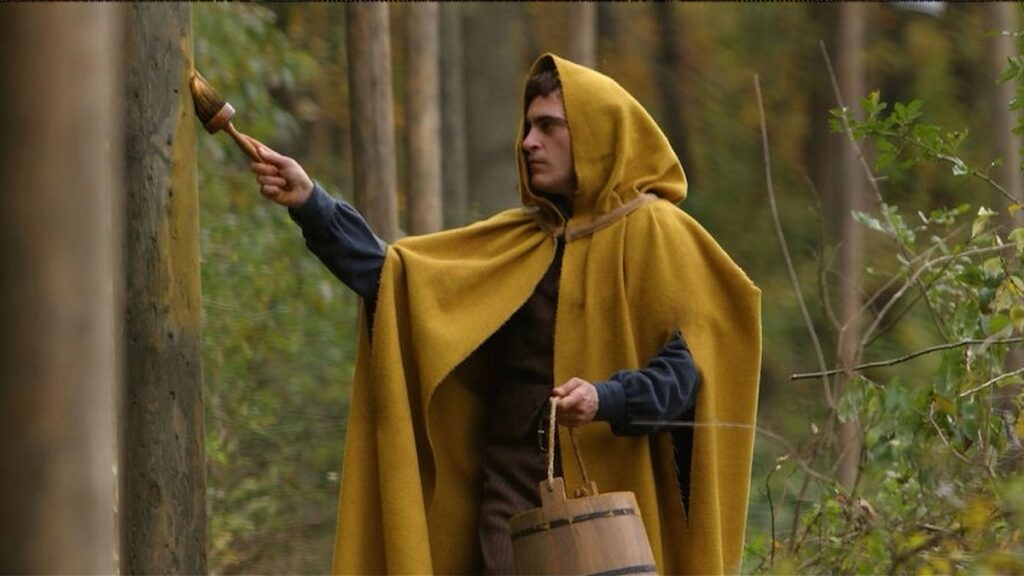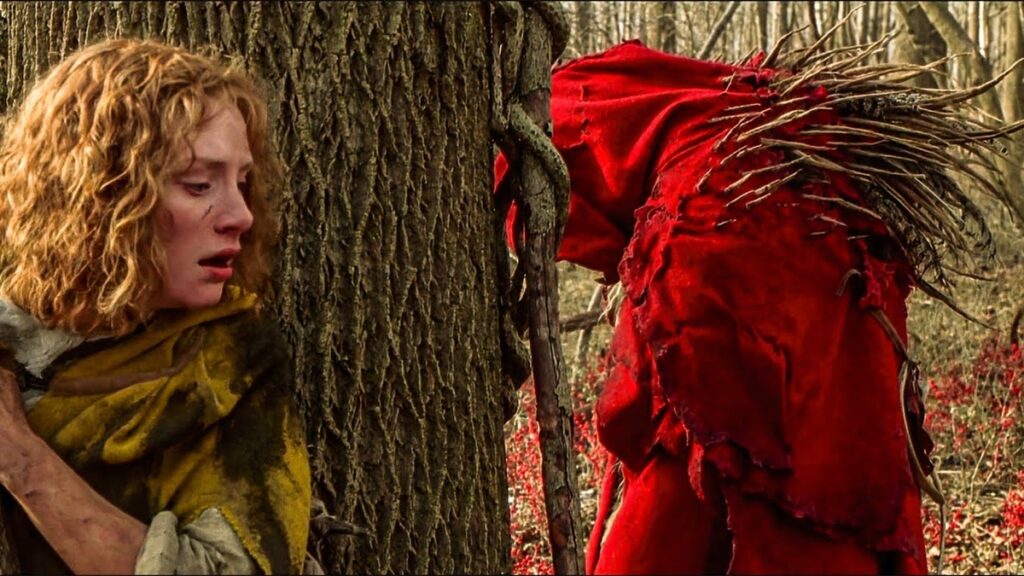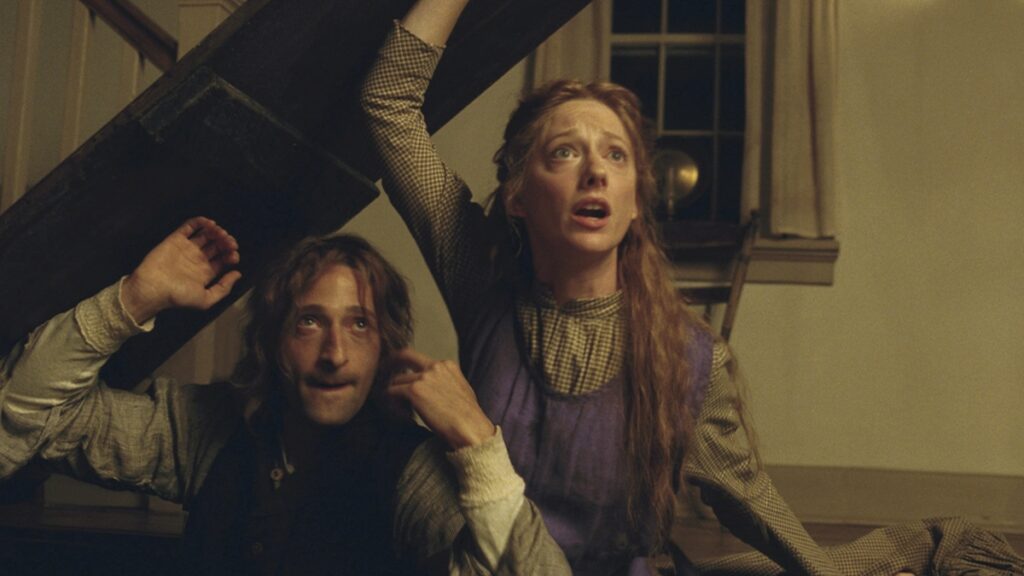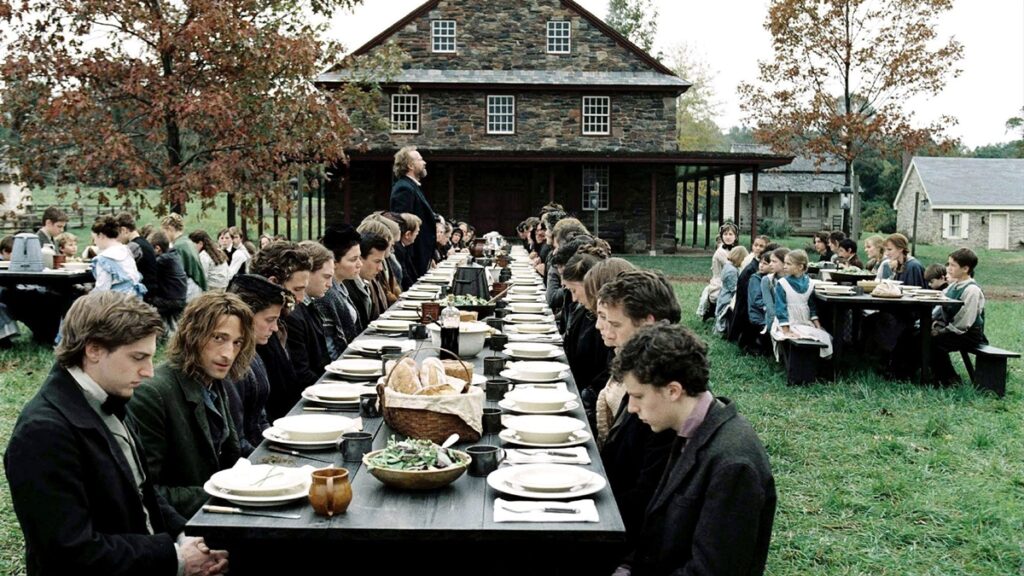M. Night Shyamalan’s first big stumble has disappointing twists, but that was never its true problem.
A year before The Village’s release, a copy of the script was stolen and distributed to sites with zero compunction about reviewing stolen materials. If you were on the internet in the naughty aughties and a fan of movies, you know exactly the type. The flurry of reviews that followed riled up readers of such sites. It reached the point that, by the film’s 2004 release, a considerable legion of film nerds already stood poised to carve up a movie they were certain would be a turkey.
Regarding the film’s “twist”—that The Village unfolded not in the late 19th Century but rather a fully constructed town hidden in a modern-day forest—they were right. While I would argue “it was the 21st Century all along!” is not inherently sillier than “he was dead all along!” execution matters. In The Sixth Sense, M. Night Shyamalan delivered a perfectly constructed twist that didn’t diminish the enjoyment of repeated viewings. The Village, on the other hand, delivers the twist—actually more of a double move—in a way that undercuts any of the shock or potential for powerful emotion needed to sell it.

However, a film is more than just a twist. On its own merits, The Village is a far more interesting mixed bag. Admittedly it falls short of the first three films of Shyamalan’s “The Next Spielberg” era—Sense, Unbreakable, and Signs. Still, it is not the first “bad” movie of that time. That honor goes to the thoroughly misbegotten Lady in the Water. It is, however, the first time Shyamalan thoroughly gets out over his skis.
On the positive side of the ledger is the look of The Village. Shyamalan’s collaboration with the legendary Roger Deakins as his Director of Photography gives the writer-director his prettiest film to date. The use of lighting and color creates a visually arresting palette that is a powerful contrast to the darker blues, greys, and greens of Unbreakable and Signs.
[The Village] is a poison kiss to authority—society, parents, and religion all get called on the carpet.
The shot composition is also thoughtful and compelling. The way the film plays with depth of field to build tension in the first third to half is impressive. It is also interesting how Shyamalan stops using that as a technique once Ivy (Bryce Dallas Howard) learns the truth about the monstrous red-cloaked “Those We Don’t Speak Of.” As (part) of the reality of Ivy’s world comes into focus for her, the film stops blurring potential threats in the frame’s background.
While rarely spoken of as such, The Village is also Shyamalan’s most pessimistic film about human nature. It never quite becomes cynical—characters like the saintly Ivy and the stoic and empathetic Lucius Hunt (Joaquin Phoenix) make sure of that. Still, for a filmmaker who usually showcases faith and flawed parents (or parental figures) who nonetheless get their stuff together in the end, The Village is bereft of any such balms.

Here, the village acts as, essentially, a cult where the elders enforce false rules and hollow traditions to keep their younger counterparts in line. For the first time, Shyamalan seems to be showcasing the dangers of faith in the supernatural. Not only are they lies, they’re lies that actively harm the generation force-fed them their entire lives.
On the parent front, Shyamalan had previously showcased “bad” parents—the Munchausen by proxy mom of The Sixth Sense, most prominently. However, parental figures doing their best counterbalanced these examples. Here, there is no such contrast. Each of the elders is guilty of misleading their children over and over again. While one can argue most parents hide things from their children from time to time, those instances are usually for the children’s “own good.” Here the parents’ motives are unmistakably selfish. They hated and feared the modern world. Now the kids are old enough to make their own choices about the 21st Century, the elders double down on their fiction. They will not allow their offspring to begin to individuate and find their way of interacting with the greater world.

It is a poison kiss to authority—society, parents, and religion all get called on the carpet here. Even with the poorly executed twists, that perspective would make The Village a flawed but bracing entry, a film worth watching.
Unfortunately, there’s still the matter of Noah (Adrien Brody). Having a developmentally typical individual depict someone with cognitive and other developmental delays is a dicey proposition from the jump. While “times were different” back when The Village was first released, it was still a questionable choice.

However, the problems with the character or Brody’s performance aren’t solely about the ill-advised casting call. As conceived by Shyamalan, Noah is a mess of a character. While Brody could’ve made more thoughtful choices, Noah is likely too flawed from the page to ever really work onscreen. While developmentally delayed individuals are capable of cruelty, jealousy, and recklessness as much as any person, Noah’s mix of malevolence and childishness feels, well, gross.
What would be lost if Noah wasn’t handicapped? Would his arc from Ivy’s closest friend to her biggest threat suffer for it? It’s impossible to see how it could. He’s what ultimately sinks The Village, not its poorly executed twists. I’d still assert, taken as a whole, there’s more good about the film than bad. However, Noah is the kind of dreadful one can’t just overlook or easily move past. Making the most active villain of your movie—and make no mistake, Noah is that by his last appearance—someone with cognitive impairments is so inexplicable, so wrongheaded. It gives the film a wound it can’t ever recover from.